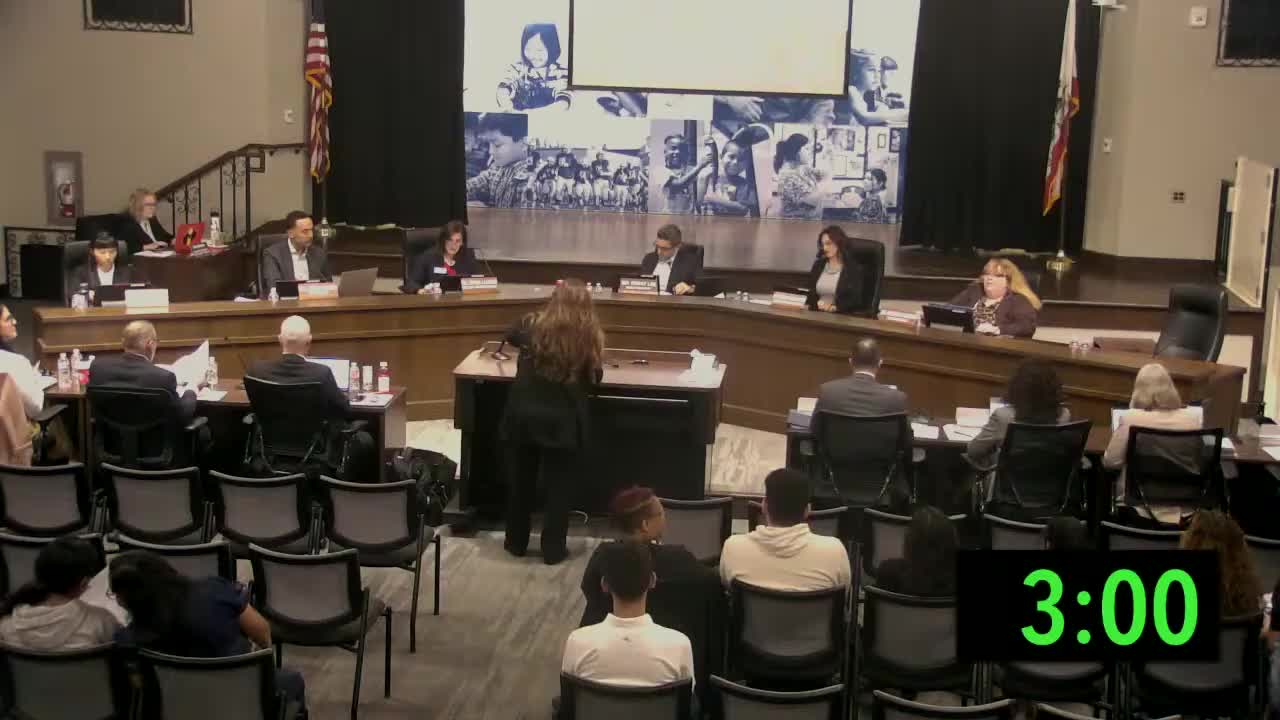Parent urges clearer rubric for religious opt‑outs after Mahmood v. Taylor; raises records and policy concerns
Get AI-powered insights, summaries, and transcripts
Subscribe
Summary
A Riverside parent urged the board Nov. 6 to adopt a clear rubric for evaluating religious opt‑out requests after Mahmood v. Taylor, and said she had not received a response to a form she submitted weeks earlier.
A Riverside parent told the school board Thursday she is concerned about how the district will handle religious opt‑outs in instruction after the Mahmood v. Taylor ruling and urged the board to develop a clear, objective rubric for evaluating requests.
"I feel like there needs to be some at some point, develop some type of rubric for us to weigh the criteria," Sande Yer told the board, referencing comments by trustees and asking who would be responsible for verifying a family's religious knowledge if a parent requests an opt‑out. Yer said she had submitted an opt‑out form "about three weeks ago" and had not received a response.
Yer cited district staff comments she had reviewed and asked whether denials would be tracked, whether an appeal process would be available and which qualifications would be required of any staff assigned to verify religious knowledge. She also said parts of district materials she reviewed characterize religious texts in ways she considered objectionable and said she did not want those materials to be presented to her child.
Later in the meeting the same commenter raised other governance concerns, urging the board to take a stronger public stance on a federal shutdown affecting food assistance, and criticizing district responsiveness to public records requests and certain policy changes. "You need to get it fixed. You're not in compliance," she said of the records process.
Board members did not take action during public comment. Superintendent Sonia Yamas and other trustees repeatedly expressed appreciation for public input. Staff said the district had added a paragraph to an existing policy and circulated a parent form for accommodations, but the administrative regulation that would explain implementation has not yet been released; the commenter said she had not received district follow‑up to her submitted form.
Notes: The public commenter referenced Mahmood v. Taylor and invoked the district’s handling of religious opt‑outs; staff described the approach as case‑by‑case and non‑stigmatizing in the meeting. The commenter also pressed the board about public‑records responsiveness and cellphone policy liability during a later public comment slot.
